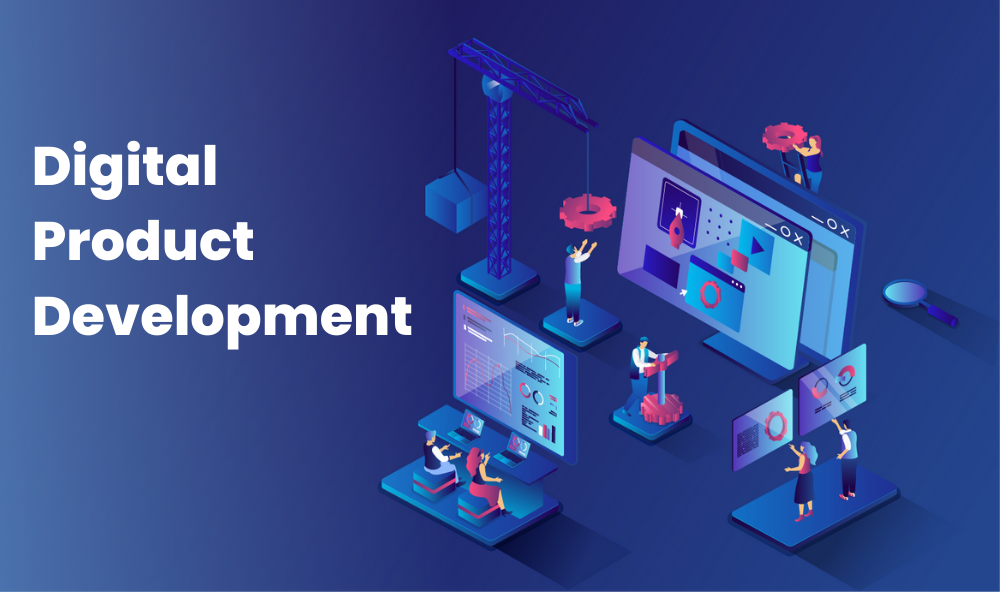
For several years now, the phrase “digital transformation” has been popular across many industries. Given the growing demand to cut costs, increase efficiency and sustainability, and keep up with the quick pace of technological advancement, it is no surprise that the energy and utilities sectors have been at the forefront of digital transformation. With a focus on the function of artificial intelligence (AI) and energy and utilities consultancy, we will examine the effects of digital transformation in the energy and utilities industries in this blog. The term “digital transformation,” which is always changing, refers to the process of using digital technology to both develop new business models and procedures and enhance existing ones. Since many industries have already incorporated digital technology like artificial intelligence (AI) into their operations, it has played a significant role in the energy and utilities industries for some time. With an emphasis on artificial intelligence in energy and utilities consulting services, energy and utilities digital transformation projects, and more, this article will explain how digital transformation has affected these two industries.
Due to their complexity and reliance on massive volumes of data, the energy and utilities sectors are ideal candidates for AI. By automating repetitive jobs, forecasting equipment problems, and maximizing energy use, artificial intelligence has the ability to completely transform the energy and utilities sectors. Additionally, artificial intelligence in energy and utilities can enable more effective and economical operations, enhancing the general performance of the sector.
Due to its capacity to swiftly and accurately analyze data while lowering human error rates, artificial intelligence in energy and utilities is increasingly being used in consulting services for the respective industries. This aids businesses in making decisions that are well-informed and based on current information. An AI system, for instance, can assist in identifying areas where efficiency could be increased or potential dangers that need to be addressed before they turn into more significant issues in the future. This kind of technology can also assist in locating chances for cost reductions by forecasting future demand trends or recommending substitutes for conventional approaches to customer demands fulfilment.
Predictive maintenance is one area where artificial intelligence in energy and utilities is significantly changing the industrial sectors. In order to forecast when equipment may fail and to schedule maintenance in advance to minimize downtime, predictive maintenance involves evaluating data from the equipment. This boosts equipment dependability and lowers maintenance expenses, increasing utilities’ bottom lines. The use of artificial intelligence in energy and utilities is also being optimized. AI, for instance, can monitor patterns of energy consumption to forecast demand and modify supply accordingly. This can result in substantial energy savings, which lowers costs for utilities and customers. AI can also be utilized to maximize the production of renewable energy, assisting utilities in meeting their sustainability objectives.
Energy and utilities consulting are essential to the industry’s digital transformation. These businesses support utilities in identifying areas for enhancement and putting new procedures and technologies into place. Energy and utilities consulting companies can assist utilities in assessing the potential advantages of AI and other digital technologies and in creating an implementation plan. The success of energy and utilities digital transformation initiatives is also attributable to technological advancements that have made it possible to automate routine chores like paying consumers or monitoring use trends over time more effectively than manual procedures would allow. While still maintaining a high level of accuracy when it comes to managing customer accounts or collecting payments from them, this increased automation enables firms to concentrate their attention on other elements of operations. Additionally, new analytics capabilities allow businesses to learn more about how customers use various goods so they can better personalize their services, ultimately increasing customer happiness.
Energy and utilities consulting companies are heavily funding digital transformation. For instance, several utilities are putting advanced metering infrastructure (AMI) in place to make it possible to manage and monitor energy consumption in real time. AMI can assist utilities in identifying and reacting to patterns of energy use, increasing energy efficiency and lowering costs.
Digital transformation calls for a change in industry culture as well as the use of new technologies. In order to accept new technologies and procedures and provide a more flexible and creative approach to operations, utilities must develop a digital mindset. This calls for a shift in organizational structure and leadership with a focus on teamwork, creativity, and continual improvement.
Customer interaction is another area where digital transformation is having a big influence. Digital technologies are being used by utilities to offer more interactive and personalized consumer experiences. Customers can now use smartphone apps, for instance, to pay bills, track their energy use, and get outage notifications. Not only does this enhance the customer experience, but it also lowers utilities costs by obviating the need for call center support.
Additionally, utilities are now better able to manage dispersed energy resources like solar panels and electric cars thanks to the digital revolution. Utilities may monitor and manage these resources using digital technologies, which will optimize energy use and cut costs. Digital technologies can also help utilities offer new services like electric vehicle charging, which will increase consumer satisfaction and open up new revenue sources.

The demand for affordable, sustainable energy is rising, and as a result, the energy and utilities sectors are going through a considerable transition. Artificial intelligence in energy and utilities is a key component of this change, enabling more cost-effective and efficient operations while also increasing sustainability. Energy and utilities consulting companies are also essential in helping utilities find opportunities for development and introduce new procedures and technologies. Finally, developments made possible by artificial intelligence have made it possible to use predictive analytics in the creation, delivery, and maintenance of energy. Companies can examine historical data pertaining to numerous aspects, such as temperature, humidity, etc., by using machine learning algorithms. Based on this knowledge, they then make predictions about potential future events so they may determine precisely when specific measures need to be made in order to prevent disruptions and preserve peak performance. As a result, firms save a huge amount of money since preventative measures cost significantly less compared to reactive ones that require emergency repair work done later.
Overall, the energy and utilities digital transformation has been significant in terms of the effectiveness, dependability, and quality of the services offered to customers worldwide. As more companies enter the market, the competition gets even tighter, demanding the use of the most recent technological advances to maintain a competitive edge over the long term. In conclusion, the energy and utilities digital transformation sectors will be significantly and widely affected. AI is revolutionizing the utilities industry by enabling more cost-effective, efficient, and sustainable operations. Energy and utilities consulting companies are essential to this change since they assist utilities in identifying areas for improvement and putting new technology and procedures in place. Energy and utilities sectors must embrace new technology and processes and develop a digital mentality if they are to fully achieve the possibilities of energy and utilities digital transformation. A considerable culture shift with an emphasis on cooperation, creativity, and continual improvement will be necessary for the transformation.


